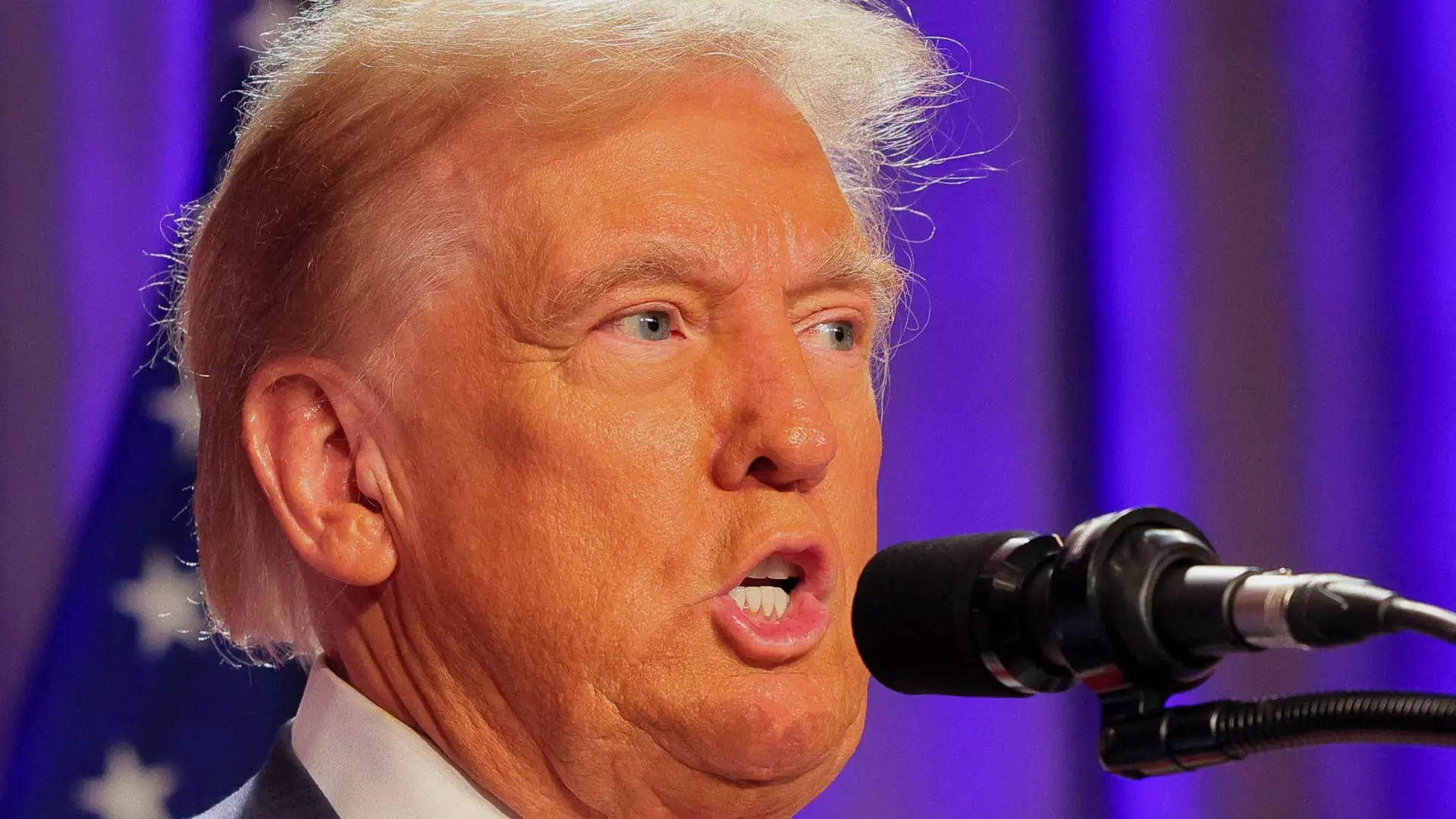In a recent interview that has sent shockwaves through the political landscape, President-elect Donald Trump participated in a discussion on NBC’s “Meet the Press” with Kristen Welker. His statements regarding U.S. military aid to Ukraine and America’s role in NATO have reignited debates about U.S. foreign policy priorities, alliances, and global responsibilities. Given the undertones of Trump’s remarks, it is crucial to unpack what these statements could mean for the future of U.S. relations, both with European allies and adversaries like Russia.
One of the most prominent points made by Trump during the interview was his suggestion that Ukraine might receive significantly less military aid once he assumes office. Trump characterized the current aid level—over $62 billion since the beginning of the conflict in February 2022—as disproportionately burdensome for the U.S. He raised a pressing question: why are European nations contributing less compared to the United States? This critical inquiry indicates a possible recalibration of American foreign policy, suggesting a focus on burden-sharing among U.S. allies.
Russian aggression in Ukraine has tested the unity of NATO, and Trump’s remarks indicate a potential move towards a more transactional approach in international relations. With Defense Secretary Lloyd Austin recently announcing a new $988 million military aid package for Ukraine, it remains to be seen how Trump’s expected policy shift on aid will affect ongoing efforts to assist Ukraine in its fight against Russian forces.
What is revealing, however, is Trump’s implicit argument that European nations need to take greater responsibility. He stated that Europe should match U.S. contributions, positing that the geographical distance between the U.S. and Europe should not lessen Europe’s commitment to its own security. This suggestion could stir tensions with European allies who may view U.S. support as vital to their own interests in curtailing Russian expansionism.
During the interview, Trump praised Ukrainian President Volodymyr Zelenskyy, describing him as “the greatest salesman of any politician that’s ever lived.” This statement raises significant concerns about the narrative surrounding military aid. By framing Zelenskyy as a skilled negotiator rather than viewing the aid through the lens of Ukraine’s existential struggle against Russia, Trump appears to shift the focus away from the dire humanitarian and sovereignty implications of the conflict.
This perspective diminishes the genuine needs of Ukraine as it confronts one of the most significant military threats since World War II. When Trump’s comments are analyzed closely, they suggest an undercurrent of skepticism towards the legitimacy of Ukraine’s government and its struggle. Such a stance risks undermining the humanitarian aspects of U.S. foreign policy.
Trump’s approach to NATO has been characterized by an insistence that member states “pay their bills.” As he considers continued U.S. participation in NATO, his rhetoric calls into question the future cohesion of this longstanding military alliance. Trump has previously hinted at withdrawing the U.S. from NATO unless allies increase their financial contributions. This perception of NATO as merely a financial obligation rather than a collective security agreement raises alarms over the implications for transatlantic unity.
Furthermore, Trump’s assertion that Ukraine’s conflict holds lesser importance for the U.S. because of geographical distance underscores a significant foreign policy pivot. This perspective may resonate with certain American constituencies weary of international commitments but could jeopardize security guarantees for both European allies and states like Taiwan.
Trump’s bold claims of broker deals with adversaries raise questions about his understanding of international diplomacy. His assertion that he can end the Russia-Ukraine conflict almost immediately, based on his alleged relationship with Vladimir Putin, is perhaps more aspirational than feasible. While fostering relationships with world leaders is an important aspect of diplomacy, the complexities of international relations cannot simply be resolved through personal relationships.
Additionally, Trump’s lack of commitment to defending Taiwan from potential Chinese incursions reflects a pragmatic, if troubling, approach to U.S. foreign policy. By expressing a hesitancy to engage militarily while favoring negotiations, Trump’s commitment to upholding international norms regarding territorial sovereignty becomes unclear.
Trump’s comments during the interview illuminate a possible shift in U.S. foreign policy that could reshape America’s global relationships. While the call for equitable support among NATO allies raises valid financial concerns, his views on Ukraine, NATO, and relationships with global adversaries must be approached with skepticism. The future of U.S. foreign policy and its ramifications on global security dynamics will undoubtedly be an ongoing subject of scrutiny and debate.

